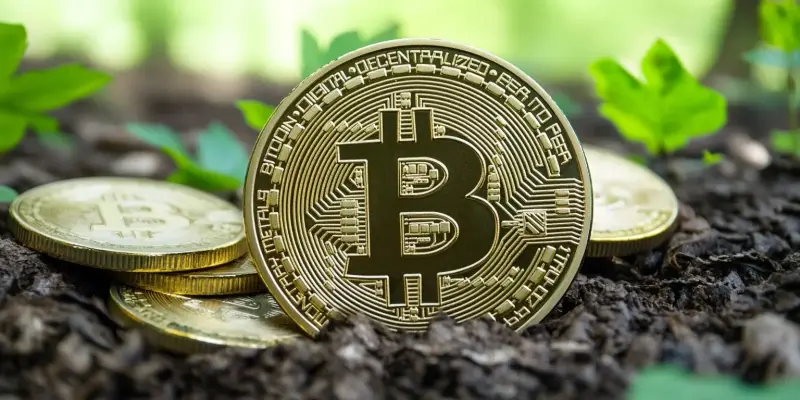In a groundbreaking move, President Donald Trump has reshaped U.S. policy on digital assets by signing an executive order to establish a strategic bitcoin reserve funded exclusively through bitcoin seized in criminal and civil forfeiture cases, ensuring no financial burden falls on taxpayers. White House Crypto and AI Czar David Sacks communicated this in a profound statement. This paradigm shift designates bitcoin as a permanent store of value, prohibiting the sale of bitcoin from the reserve and mandating a comprehensive federal audit of digital asset holdings. This development signals a definitive future for bitcoin, suggesting a shift in how national reserves could evolve in the digital age.
Strategic Bitcoin Reserve and Economic Implications
The creation of a U.S. Bitcoin Reserve sets a precedent that could trigger a wave of similar initiatives by other nations. By focusing solely on bitcoin and not actively trading it, the U.S. aims to avoid speculative trading, thus maintaining a stable, long-term store of value. This conservative approach is crucial because it underscores the U.S. government’s acknowledgment of bitcoin’s potential as a secure asset rather than a commodity subject to market whims. Furthermore, the comprehensive federal audit of digital asset holdings will ensure transparency and accountability, addressing concerns about mismanagement or potential corruption.
U.S. Treasury policies under this executive order also include the establishment of a Digital Asset Stockpile to manage other confiscated cryptocurrencies like ether, XRP, Solana’s SOL token, and Cardano’s ADA coin. Despite this broader inclusion, there is a notable skepticism among significant figures in the crypto world. For instance, Tyler Winklevoss, a bitcoin billionaire, contended that bitcoin alone meets the strategic criteria, questioning the wisdom of including other cryptocurrencies. His viewpoint highlights an ongoing debate about the roles and values of various digital currencies within national and global ecosystems.
Validation and Implications for Bitcoin
Nic Carter of Castle Island Ventures views the U.S.’s commitment to a bitcoin-only reserve as a monumental validation of bitcoin’s role as a global asset, much akin to gold. This endorsement is expected to enhance bitcoin’s prestige and legitimacy on the world stage. Such validation by a major economy signals a shift in both investment strategies and national reserve policies, potentially encouraging other countries to consider similar moves and substantially impacting traditional financial markets.
Ryan Gilbert, a prominent fintech investor, emphasizes that by distinguishing bitcoin from other cryptocurrencies through this decision, the United States is solidifying its status as a premier digital asset. This differentiation could act as a catalyst, prompting investors to direct their resources toward bitcoin while possibly diminishing interest in alternative cryptocurrencies. Moreover, the long-term retention of bitcoin rather than its active trading speaks volumes about its perceived stability and enduring value. The U.S.’s stance could set a global trend, influencing investor behavior and government policies worldwide.
Fiscal Decisions and Long-Term Planning
David Sacks, the White House Crypto and AI Czar, described the executive order as monumental, highlighting the considerable potential value loss due to the government’s previous strategy of liquidating seized bitcoin promptly. By refining this approach to emphasize long-term holding, the U.S. aims to maximize the value derived from seized assets, thus turning a previously speculative asset into a durable and invaluable national reserve.
With Treasury Secretary Scott Bessent and Commerce Secretary Howard Lutnick overseeing the strategy, the policy encompasses budget-neutral methods for acquiring additional bitcoin. This strategic planning represents a critical evolution in U.S. digital asset policy, promoting bitcoin as a foundational element in the burgeoning crypto economy. This pragmatic approach seeks sustainable expansion by ensuring strict oversight and avoiding fiscal pitfalls. Consequently, it echoes a commitment to integrating digital assets into the broader economy while maintaining strict regulatory oversight.
Future Considerations and Global Impact
In a groundbreaking move, President Donald Trump has fundamentally changed U.S. policy on digital assets by signing an executive order to create a strategic bitcoin reserve. This reserve is uniquely funded exclusively through bitcoin seized in criminal and civil forfeiture cases, ensuring taxpayers have no financial burden. This significant policy shift was communicated by White House Crypto and AI Czar David Sacks in a detailed statement. The new strategy positions bitcoin as a permanent store of value, prohibiting the sale of bitcoin from this reserve and requiring a thorough federal audit of all digital asset holdings. This development signifies a pivotal future for bitcoin and indicates a shift in how national reserves might evolve in the digital age. By establishing this reserve, the administration acknowledges bitcoin’s growing importance and potential stability. This move could set a precedent for other nations to follow, suggesting that digital assets could become integral parts of national reserves in the future.

